Blockchain
A hands-on experience on some of the most popular smart contract platforms
Published
2 years agoon
By
redfly.eth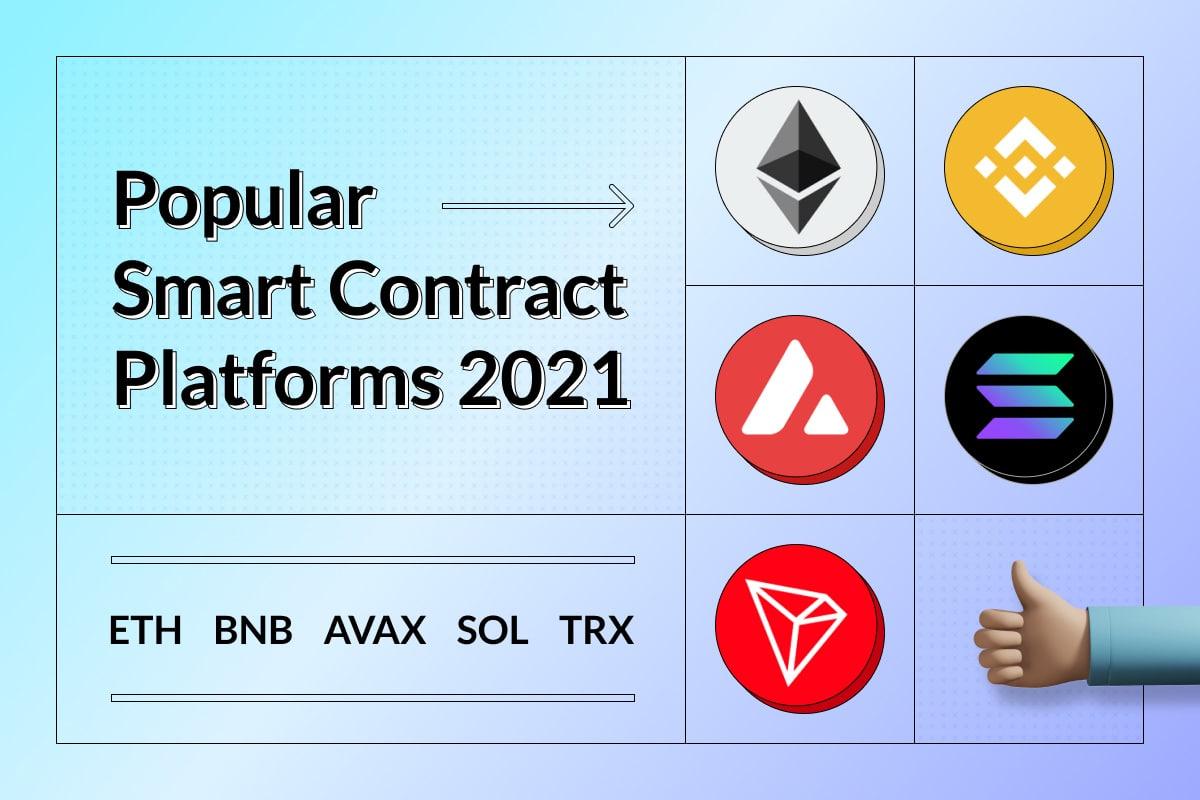
In 2021, many smart contract platforms competed for users’ attention and attempted to be the next Ethereum killer. The terms DeFi, GameFi, and NFT, have been all over the media lately, and any of these would not be possible without smart contracts. As more smart contract platforms are introduced, it becomes hard for newcomers to choose which is right for them. This article will examine some of the most popular smart contract platforms and share our hands-on experience with them.
Ethereum
Token: ETH
TPS: 10
Ethereum is the world’s first smart contract platform. Developers create decentralized applications (dApps) on the Ethereum Virtual Machine (EVM) with an object-oriented programming language called solidity. Users can interact with dApps that operate autonomously. Since Ethereum is the first smart-contract-enabled blockchain platform, it has a lot of active developers and has the most Total Value Locked (TVL) in DeFi as far as blockchains are concerned. However, despite being the most popular smart contract platform, it still has a few downsides that make us try to stay away from it when possible. One drawback is the slow transaction speed since Ethereum can only process around 10 transactions per second (TPS). The other problem is the hefty transaction fee it charges when the network is busy, in which the fee may sometimes cost more than the transaction per se.
Binance Smart Chain
Token: BNB
TPS: 60
Binance Smart Chain (BSC) is a smart contract blockchain that is fully compatible with the EVM, so developers can leverage existing tools to write dApps without having to learn an entirely new language. In addition, the increase in transaction speed compared to Ethereum is welcoming. BSC started to gain traction earlier last year, it forked a lot of Ethereum projects that bootstrapped the entire ecosystem, and in the latter part of last year, we see GameFi booms on BSC. One most notable concern that many community members have is the centralization of the Binance chain since Binance is a centralized exchange, and most of its validators are connected to Binance. Nonetheless, BSC has a unique and strategic position in the entire crypto ecosystem.
Avalanche
Token: AVAX
TPS: 4,500
Avalanche is an open-source platform for launching DeFi applications and enterprise blockchain deployments in one interoperable, highly scalable ecosystem. Avalanche is the first smart contract platform that confirms transactions in under one second with finality on every block. It provides a new consensus mechanism with an adaptable platform optimized for enterprise adoption and developer needs while solving the challenging problems of scaling and security. The AVAX rush incentive plan also ignited the whole Avalanche ecosystem last year, with large price swings in the latter half of the year. We miss the low transaction fees that Avalanche offered at the very start. Another concern we have is their failure to keep up to date with various promises such as burning the foundation’s staking rewards and the introduction of feeless transactions. If Avalanche could significantly reduce its fees and improve communication while keeping its promises, it’s still a smart contract platform worth keeping an eye on.
Solana
Token: SOL
TPS: 2,000
Solana is a high-performance open-source blockchain. It provides a platform for dApps and next-generation protocols. With its Proof of History (PoH) consensus mechanism, the Solana blockchain allows for breakneck transaction speeds, claiming to scale to over 50,000 TPS on an open network, which is said to be possible due to Solana’s novel approach.This deterministic checkpointing mechanism that is used in place of synchronous consensus. However, Solana’s actual TPS is around 2,000, with more than 3/4 of these transactions being vote transactions. The seemingly inflated TPS widely promoted to the public might reflect the questionable design of the Solana platform. Even though it was once regarded as a crypto rising star, with its six blockchain outages happening in the last month alone, Solana is facing fundamental questions about its network stability, as well as the ability to maintain itself as a Wall Street darling.
TRON
Token: TRX
TPS: 2,000
TRON is an innovative open-source blockchain that focuses on providing a cost-effective settlement solution with the ultimate goal of decentralizing the internet. The high level of scalability offered by the system and its mandate for low costs are attractive propositions for those considering taking their first step into the crypto world. Since last April, the amount of Tether USDT on TRON has surpassed Ethereum to become the No.1 worldwide. TRON became the preferred blockchain for many when transferring and converting stablecoins because of its low fees. The TRON network’s increasing dApps and NFT projects also attracted many new users from other blockchains. However, we noticed that newcomers sometimes brought up the concept of bandwidth and energy on the TRON network. Although understanding bandwidth and energy is not necessary to make a transaction, users should be encouraged to look into them as utilizing these resources by staking a certain amount of TRX would enable one to send transactions or interact with smart contracts for free.
Throughout last year, we saw many smart contract platforms rising to compete with Ethereum, and each of them has its pros and cons. There is an incredibly increasing demand for a good smart contract platform, and every platform will eventually have its place in the ecosystem. Investors, users, and developers should take a closer look at each of these blockchains and pick the one that matches their needs best.
You may like
Blockchain
Zeebu’s Remarkable Growth Surpasses $2 Billion in Total Settlement Volume
Published
1 day agoon
May 18, 2024
Zeebu has surpassed $2 billion in total settlement volume, reflecting its remarkable growth and strategic positioning within the blockchain-based payments landscape. This milestone exemplifies Zeebu’s rapid ascent and its crucial role in transforming the financial operations of telecom carriers globally.
In just a few months following the launch of Zeebu’s on-chain settlement platform, the company impressively managed to settle thousands of invoices, rapidly progressing from an initial $1 billion to now surpassing $2 billion in transactions. This growth underscores the platform’s scalability and the robust demand for its services.
Zeebu has become a pivotal player in blockchain-based settlements for the telecom sector, offering an instant payment and settlement solution that significantly reduces transaction times from days to minutes and cuts out intermediaries through the use of smart contract technology.
The core of Zeebu’s innovation is the ZBU Token, which not only facilitates global transactions but also enhances participant engagement through a loyalty and rewards system. This tokenization strategy effectively tackles common financial hurdles like high fees, delays in remittance, and issues with currency exchange, making it an ideal solution for cross-border settlements.
The platform’s usage has expanded substantially, with a growing number of telecom carriers and businesses leveraging Zeebu’s capabilities. As the platform evolves, Zeebu continues to attract new users who recognize its benefits, reinforcing its position as a trusted and leading payment platform in the market.
The data from Zeebu’s dashboard reveals that the overall transaction volume on the platform has already crossed over $2 Billion. At the time of writing, the number of invoices settled stands at 32k+, with total users around 465.
Some of the company’s achievements this year included two massive token burn events and participation in leading telecom and Web3 events across the globe. The first token burn occurred in February 2024, removing over 236 million ZBU tokens from circulation, accounting for more than 4.7% of the total supply.
The second burn took place in May 2024, removing an additional 239 million ZBU tokens, reinforcing Zeebu’s commitment to a sustainable token ecosystem through its Phoenix Protocol, which automates and governs the burn process to ensure a balanced token supply.
In addition to these token burns, Zeebu has actively expanded its presence by participating in and sponsoring major telecom and Web3 events across the Middle East, the Americas, and other regions. This strategic involvement has helped Zeebu establish a strong foothold in these markets and increase its brand visibility.
To further raise awareness about Zeebu, the company partnered with CoinMarketCap and CoinGecko to host several campaigns. These efforts, coupled with listings on prominent exchanges, have significantly enhanced Zeebu’s market presence and credibility.
Moreover, Zeebu released a major update to its Payment Service Provider (PSP) platform, introducing governance features that enable telecom merchants to transition from passive users to active participants in the ecosystem. This update enhances the overall user experience and fosters a more engaged community within the Zeebu platform.
Raj Brahmbhatt, Founder and CEO of Zeebu, added, “This milestone is a significant leap forward in our journey, clearly aligning with our broader strategic goals. As the telecom industry increasingly embraces innovative payment solutions such as blockchain, our extensive experience and proven ability to provide exceptional user experiences and customized financial solutions uniquely position us to meet the growing demands of this dynamic sector.”
Looking ahead, Zeebu is set to further enhance its services, expand its ecosystem, and transition towards a more decentralized and community-driven governance model. To learn more about Zeebu’s innovative platform, click here.
Blockchain
El Salvador Bitcoin Treasury Climbs to Over $350 Million
Published
4 days agoon
May 16, 2024By
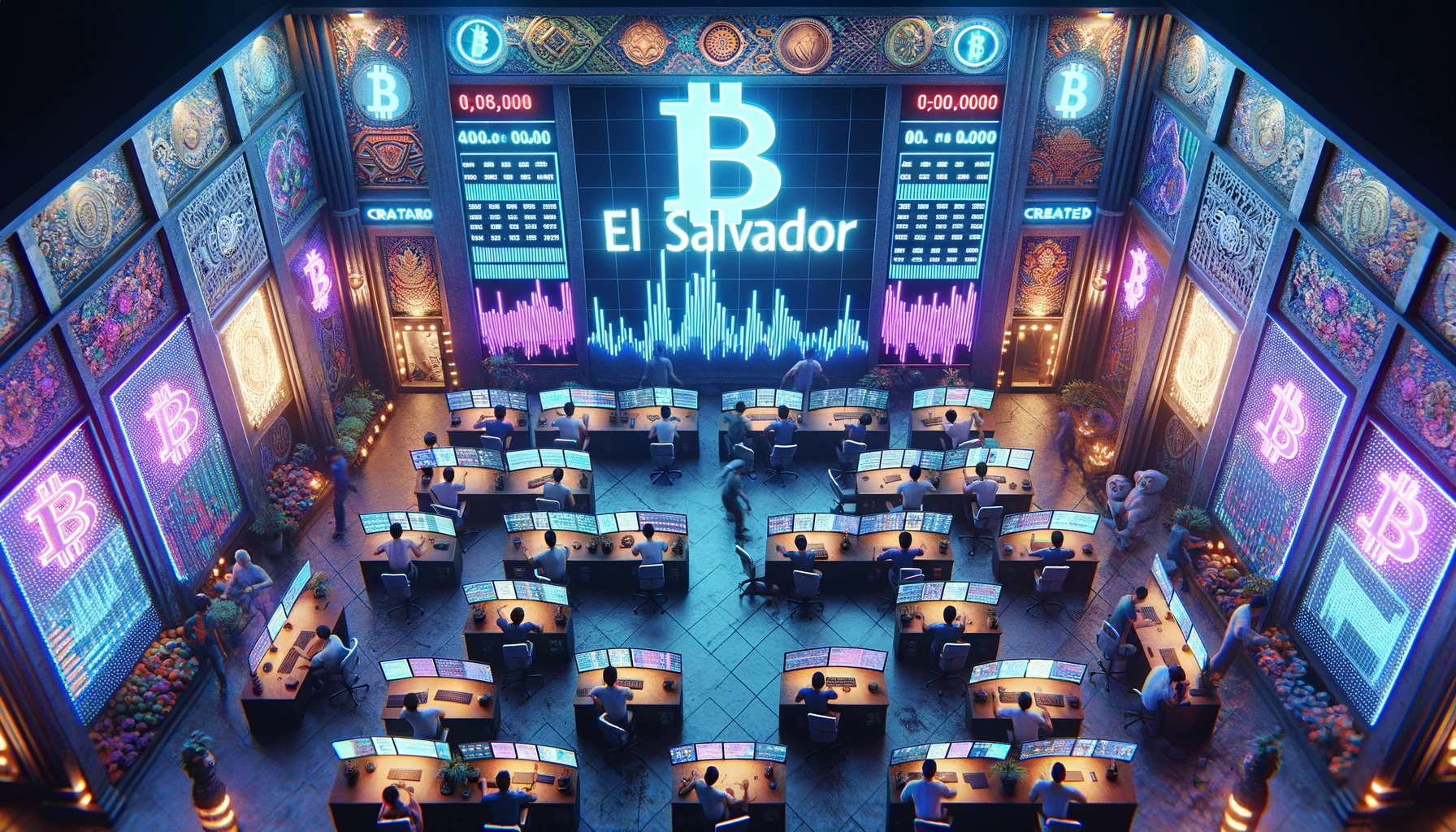
El Salvador Bitcoin Treasury climbs over 350 Million as with this bold experiment in national economics and finance, positioning the country at the forefront of cryptocurrency adoption worldwide.
As of 2024, the valuation of El Salvador’s national Bitcoin treasury has impressively surpassed $350 million, reflecting both the growth in Bitcoin’s market value and the country’s aggressive acquisition strategy.
This milestone highlights El Salvador’s commitment to integrating Bitcoin into its economic infrastructure, with significant implications for its financial system and international standing.
Overview of Historical Context and Initial Investments in El Salvador’s Bitcoin Strategy
El Salvador officially adopted Bitcoin as legal tender in September 2021, under the administration of President Nayib Bukele.
The move was groundbreaking, making El Salvador the first country to integrate cryptocurrency into its legal and financial systems. Initially, the government purchased 400 Bitcoins and has since increased its holdings to 5,748.76 BTC.
The strategy aimed to leverage Bitcoin to boost economic growth, attract foreign investment, and increase financial inclusivity among its population.
However, the decision was met with domestic and international skepticism due to concerns about volatility and regulatory challenges.
Current Holdings and Value
As reported by Binance, El Salvador now holds a significant amount of Bitcoin, valued at over $350 million.

The government has established a transparent mechanism to monitor these holdings through a newly introduced website, which provides real-time data on the quantity and value of its Bitcoin assets.
This initiative is part of a broader effort to demonstrate transparency and build trust among citizens and international observers.
El Salvador Bitcoin Treasury Impact on El Salvador’s Economy
Financial Implications
The adoption of Bitcoin has had profound financial implications for El Salvador. It can potentially reduce transaction costs, bypass banking fees, and facilitate remittances, constituting a significant portion of the country’s GDP.
However, the volatility of Bitcoin poses risks to fiscal stability, as fluctuations in its value can dramatically affect the national budget and economic planning.
This aspect of El Salvador’s Bitcoin strategy has attracted considerable attention from global financial analysts and has been the subject of extensive coverage in leading financial news outlets, including Bloomberg.
Public and International Perception
Internationally, El Salvador’s move has been viewed with curiosity and caution.
Financial institutions like the IMF have warned of potential risks associated with adopting a cryptocurrency as legal tender, citing concerns over economic stability and transparency.
Domestically, the public’s response has been mixed, with some expressing pride in their country’s innovative approach. In contrast, others are apprehensive about the potential economic repercussions and the steep learning curve of using digital currencies.
Challenges and Criticisms

Economic Volatility
The intrinsic volatility of Bitcoin is a significant concern. Its price can experience substantial swings based on market dynamics, which can immediately impact the value of El Salvador’s national treasury.
Such fluctuations pose challenges for budgeting and financial forecasting, complicating economic management at a national level.
Political and Regulatory Challenges
El Salvador’s Bitcoin policy has also faced political and regulatory challenges.
Locally, the opposition has criticized the government for lacking a comprehensive strategy to educate the public and mitigate the risks associated with cryptocurrency transactions.
Internationally, the country faces scrutiny from regulatory bodies concerned about the implications for global financial stability and compliance with international financial regulations.
Future Prospects and Government Plans of El Salvador
Government Statements and Actions
In light of these challenges, Salvadoran officials have reiterated their commitment to the Bitcoin strategy, emphasizing potential long-term benefits such as increased financial inclusivity and economic innovation.
The government has announced plans to continue bolstering the infrastructure necessary to support Bitcoin and other digital currencies, aiming to make El Salvador a hub for cryptocurrency innovation and investment.
Potential Expansion and Technological Investments
El Salvador plans to expand its technological framework to better integrate Bitcoin into its economic and financial systems.
Investments in technology that will enable more straightforward and safer transactions are part of this, as they will increase the acceptance of Bitcoin in various economic sectors.
Conclusion
El Salvador’s venture into Bitcoin as a legal tender is an ongoing and evolving experiment, drawing global attention and debate.
This bold initiative’s outcome could influence future cryptocurrency adoption policies in El Salvador and worldwide.
It represents a crucial case study in the intersection of technology, finance, and national governance.
FAQs
What is the current value of El Salvador’s Bitcoin holdings?
El Salvador’s holdings in Bitcoin are valued at over $350 million, reflecting the nation’s substantial investment in this digital asset.
How has the adoption of Bitcoin affected El Salvador’s economy?
Bitcoin adoption has offered opportunities for financial innovation but has also introduced significant volatility and economic risk.
What are the risks of El Salvador’s strategy of holding Bitcoin?
The primary risks involve economic volatility, regulatory challenges, and potential political instability due to the controversial nature of the strategy.
How does the Salvadoran government plan to manage the volatility associated with Bitcoin?
The government is enhancing regulatory frameworks and investing in technological infrastructure to stabilize and secure Bitcoin transactions.
What future plans does El Salvador have regarding its cryptocurrency strategy?
El Salvador aims to expand its technological framework, improve regulatory policies, and maintain its position as a global leader in cryptocurrency adoption.
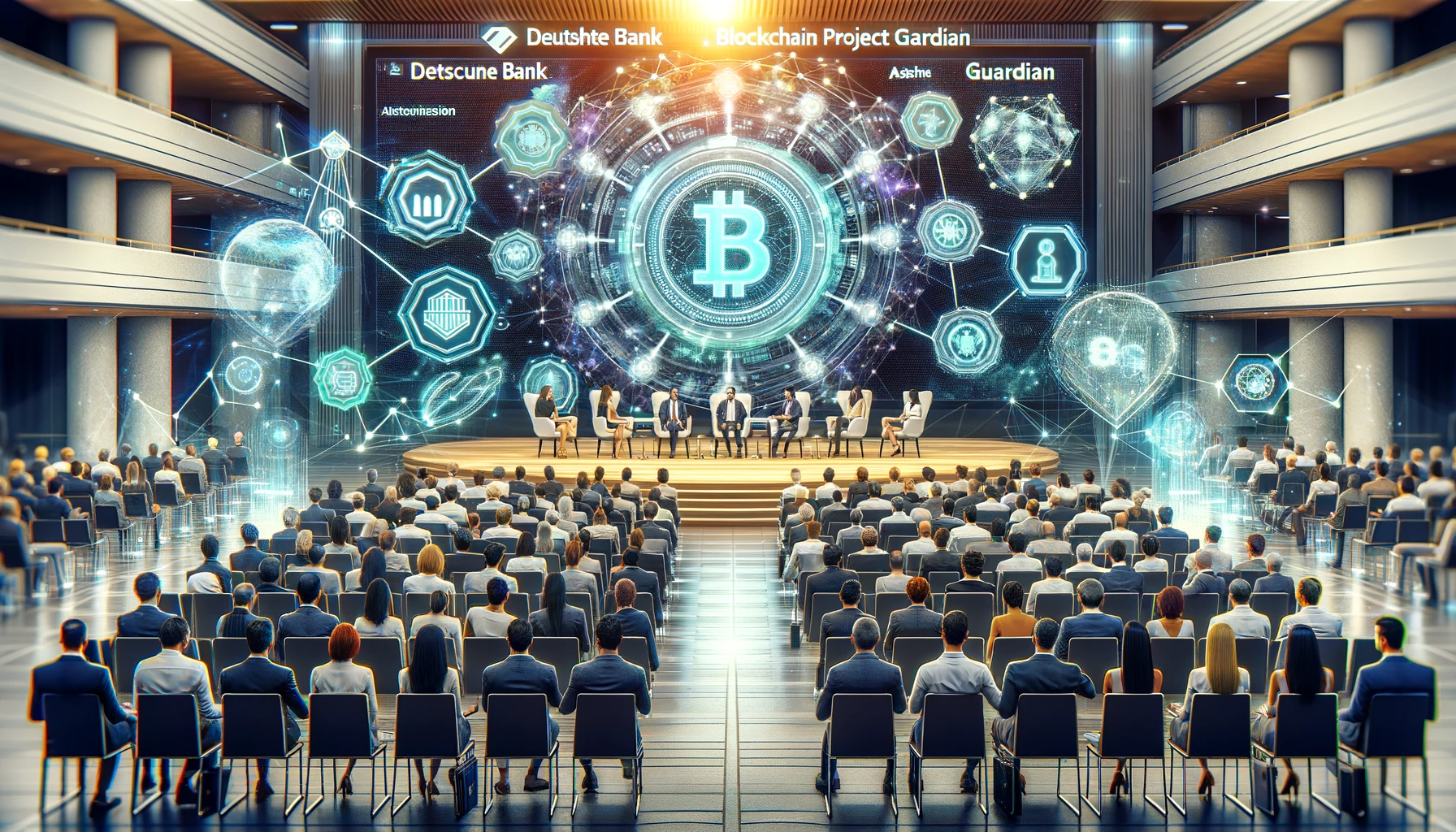
Deutsche Bank Blockchain Project Guardian is a groundbreaking initiative spearheaded by the Monetary Authority of Singapore (MAS). This project is set to explore the expansive potential of asset tokenization and decentralized finance (DeFi) within the financial sector.
This project is part of a larger effort by MAS to blend traditional financial practices with innovative blockchain technologies, aiming to enhance the efficiency, transparency, and security of financial transactions across various asset classes.
While MAS strongly discourages and seeks to restrict speculation in cryptocurrencies, we see much potential for value creation and efficiency gains in the digital asset ecosystem. This is why we are actively collaborating with the industry to foster a responsible and innovative digital asset ecosystem.
As we enter this new phase of Project Guardian, we look forward to collaborating with fellow policymakers and industry practitioners to jointly develop effective frameworks to guide the sound development of future financial networks.
Leong Sing Chiong, Deputy Managing Director (Markets and Development), MAS
Project Guardian, first introduced by MAS, serves as a collaborative platform that engages multiple top-tier global financial institutions, regulatory authorities, and technology companies.
The initiative focuses on experimenting with and understanding blockchain’s applicability in areas like asset management, fixed income, and foreign exchange.
For Deutsche Bank, this participation signifies a crucial step towards embracing digital transformation and preparing for future financial ecosystems dominated by digital assets and technologies.
Deutsche Bank’s involvement highlights its commitment to innovation and its strategic approach to leveraging new technologies to stay competitive in the rapidly evolving financial landscape.
By participating in Project Guardian, Deutsche Bank aims to explore the practical aspects of blockchain in reducing complexities in asset management, improving transaction speed, and lowering costs, which could revolutionize traditional banking operations and client services.
The bank’s collaboration in this project not only allows it to pilot cutting-edge technologies in a regulatory-compliant environment but also positions it as a forward-thinking leader eager to tap into the emerging market of tokenized assets.
The involvement is expected to yield insights into the scalability and robustness of blockchain applications in real-world financial settings, providing Deutsche Bank with a competitive edge in digital finance.
Deutsche Bank Blockchain Project Guardian Strategic Integration

Deutsche Bank is among the key financial institutions collaborating under the MAS-led Project Guardian, which aims to test the viability and impact of asset tokenization in modernizing financial practices.
This involvement is not merely participatory; Deutsche Bank is actively engaging in pilot projects that test tokenization across several financial sectors, including asset management, fixed income, and foreign exchange, which are crucial to understanding the practical applications and potential disruptions blockchain technology may bring to the financial industry.
Contributing to Project Guardian will bolster our efforts to help shape the new frontier of asset servicing, and strongly position us to contribute to industry progress, and not only anticipate our clients’ needs but exceed their expectations.
Strategic Importance for Deutsche Bank
The strategic importance of Deutsche Bank’s involvement in Project Guardian lies in its potential to redefine financial asset management and transaction processes.
By integrating blockchain technology, Deutsche Bank aims to achieve greater transaction efficiency, enhanced transparency, and improved security measures.
The project allows the bank to explore these technologies in a sandbox environment, mitigating risks while assessing the feasibility of wider implementation across its global operations.
Asset tokenization, as explored in Project Guardian, could significantly lower the barriers to entry for various investment opportunities, allowing for smaller investment denominations and broader investor participation.
The democratization of access to high-value asset markets, which have historically been inaccessible due to their high entry costs and intricate management demands, may result from this development, potentially broadening the clientele of Deutsche Bank.
Expected Benefits and Challenges to Deutsche Bank
The expected benefits for Deutsche Bank include operational efficiencies through streamlined processes and reduced reliance on intermediaries, which can lead to cost savings and faster transaction times.
Moreover, tokenization could enhance liquidity in traditionally illiquid asset classes, a significant advantage in asset and wealth management sectors.
However, the integration of blockchain technology also presents challenges, primarily regulatory and technical. Navigating the complex regulatory landscape, ensuring compliance with international financial regulations, and managing the technical aspects of blockchain integration are critical hurdles that Deutsche Bank will need to overcome.
As Project Guardian progresses, Deutsche Bank is poised to play a pivotal role in shaping the regulatory frameworks and industry standards for blockchain in financial services, contributing not only to its strategic objectives but also to the broader economic ecosystem’s evolution toward digital assets.
Deutsche Bank’s Strategic Journey in Blockchain and Asset Tokenization

Deutsche Bank’s involvement in Project Guardian marks a significant milestone in its digital transformation journey. By actively participating in this pioneering initiative led by the Monetary Authority of Singapore (MAS), Deutsche Bank is positioning itself at the forefront of the financial industry’s shift towards blockchain technology and asset tokenization.
This strategic move is indicative of the bank’s commitment to innovation and its vision to redefine the landscape of financial services.
Key Takeaways:
- Leadership in Innovation: Deutsche Bank’s participation in Project Guardian not only highlights its role as an innovator but also as a leader in shaping the future of financial technologies. The project allows Deutsche Bank to explore and potentially set new standards for the use of blockchain in financial services, ensuring it remains competitive in a rapidly evolving digital economy.
- Enhanced Client Services and Operational Efficiencies: Through blockchain and tokenization, Deutsche Bank can offer its clients more diverse and accessible investment opportunities while also achieving greater operational efficiency and security in its transactions. These advancements could lead to improved customer satisfaction and loyalty, which are crucial in the competitive banking sector.
- Navigating Challenges: The journey has its challenges, including regulatory hurdles, technical integration issues, and the need for substantial cultural shifts within the organization. How Deutsche Bank addresses these challenges will be critical to its success and could provide valuable insights into the resilience and adaptability of large financial institutions embracing new technologies.
Challenges Facing Deutsche Bank
- Regulatory Compliance and Uncertainty: As blockchain and tokenization are relatively new technologies in the financial sector, regulatory frameworks are still developing. Deutsche Bank must navigate these evolving regulations and ensure compliance across different jurisdictions, which can be complex and resource-intensive.
- Technical Integration and Security Concerns: Integrating blockchain technology with existing financial systems poses significant technical challenges. Ensuring the security and robustness of these systems against cyber threats is crucial, as blockchain networks can be susceptible to various security risks.
- Market and Technological Risks: The adoption of blockchain and tokenization involves exposure to market risks related to the volatility of digital assets and technological risks associated with the deployment of new technologies. Managing these risks effectively is essential to prevent potential financial losses and reputational damage.
- Cultural and Organizational Change: Implementing blockchain technology requires significant changes in organizational processes and culture. Deutsche Bank will need to invest in training and development to prepare its workforce for new operational paradigms associated with digital assets and tokenization.
Future Outlook:
As Project Guardian continues to evolve, Deutsche Bank’s ongoing involvement will likely influence not only its operations but also the broader financial industry’s approach to digital assets and blockchain technology. The insights gained from this initiative could lead to more robust, efficient, and inclusive financial systems globally.
Deutsche Bank’s strategic investment in blockchain technology through Project Guardian reflects its proactive approach to adopting next-generation technologies.
This involvement is set to not only transform its internal operations but also to potentially redefine global financial practices, making it a key player in the future of digital finance.
FAQs
1. What is Project Guardian?
Project Guardian is an initiative led by the Monetary Authority of Singapore (MAS) that explores the potential of blockchain technology and asset tokenization in the financial industry. It involves collaboration with global financial institutions to pilot innovative applications in areas such as asset management, fixed income, and foreign exchange.
2. Why is Deutsche Bank participating in Project Guardian?
Deutsche Bank is participating in Project Guardian to leverage blockchain technology to enhance the efficiency, transparency, and security of financial transactions. This involvement aligns with its strategic goals of digital transformation and innovation in financial services.
3. What benefits does blockchain technology offer to Deutsche Bank?
Blockchain technology offers Deutsche Bank multiple benefits, including improved operational efficiencies, enhanced liquidity for illiquid assets, expanded market access, and the ability to provide innovative financial products to a broader range of investors.
4. What are the challenges Deutsche Bank faces with blockchain adoption?
Deutsche Bank faces several challenges with blockchain adoption, including regulatory compliance, technical integration of blockchain with existing systems, security concerns, and the need for organizational adaptation to new technologies.
5. How could asset tokenization change the financial industry?
Asset tokenization could revolutionize the financial industry by making investments more accessible, increasing the liquidity of traditionally illiquid assets, and simplifying complex financial operations through automation and transparency.
6. What is the future outlook for Deutsche Bank’s blockchain initiatives?
The future outlook for Deutsche Bank’s blockchain initiatives is promising, with the potential to influence how financial services are delivered and consumed significantly. Continued participation in projects like Guardian could position Deutsche Bank as a leader in the adoption of digital finance technologies.

Zeebu’s Remarkable Growth Surpasses $2 Billion in Total Settlement Volume



The Scandal of Aiden Pleterski, Canada’s Crypto King



Top Altcoins in 2024 Will Be Dominating Investor Interest



Memecoin Madness: Eddie Seal Team Insults Investors and Returns Money from Presale



El Salvador Bitcoin Treasury Climbs to Over $350 Million



Deutsche Bank Blockchain Project Guardian



Cardalonia Aiming To Become The Biggest Metaverse Project On Cardano



WOM Protocol partners with CoinPayments, the world’s largest cryptocurrency payments processor



P2P2C BREAKTHROUGH CREATES A CONNECTION BETWEEN ETM TOKEN AND THE SUPER PROFITABLE MARKET



ETHERSMART DEVELOPER’S VISION MADE FINTECH COMPANY BECOME DUBAI’S TOP DIGITAL BANK



WOM Protocol Recommended by Premier Crypto Analyst as only full featured project for August



Project Quantum – Decentralised AAA Gaming
Trending
-



 Crypto2 years ago
Crypto2 years agoCardalonia Aiming To Become The Biggest Metaverse Project On Cardano
-

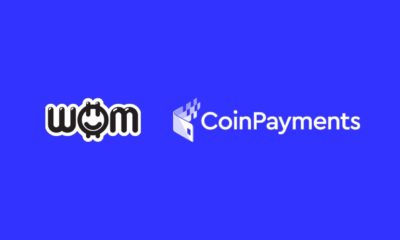

 Blockchain4 years ago
Blockchain4 years agoWOM Protocol partners with CoinPayments, the world’s largest cryptocurrency payments processor
-

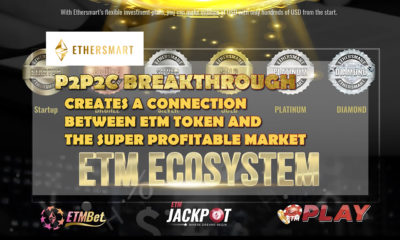

 Press Release3 years ago
Press Release3 years agoP2P2C BREAKTHROUGH CREATES A CONNECTION BETWEEN ETM TOKEN AND THE SUPER PROFITABLE MARKET
-



 Press Release3 years ago
Press Release3 years agoETHERSMART DEVELOPER’S VISION MADE FINTECH COMPANY BECOME DUBAI’S TOP DIGITAL BANK
-

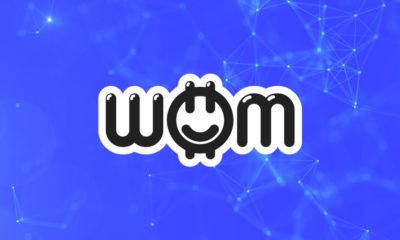

 Blockchain4 years ago
Blockchain4 years agoWOM Protocol Recommended by Premier Crypto Analyst as only full featured project for August
-

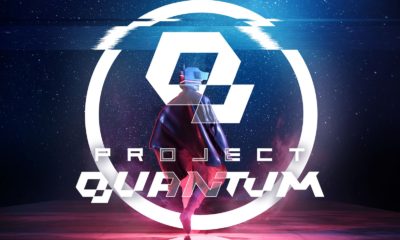

 Press Release3 years ago
Press Release3 years agoProject Quantum – Decentralised AAA Gaming
-

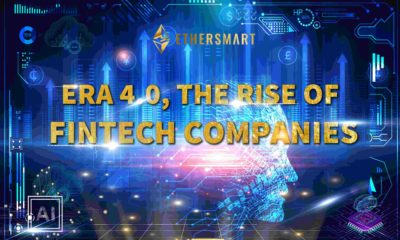

 Press Release3 years ago
Press Release3 years agoETHERSMART DEVELOPER’S VISION MADE FINTECH COMPANY BECOME DUBAI’S TOP DIGITAL BANK
-

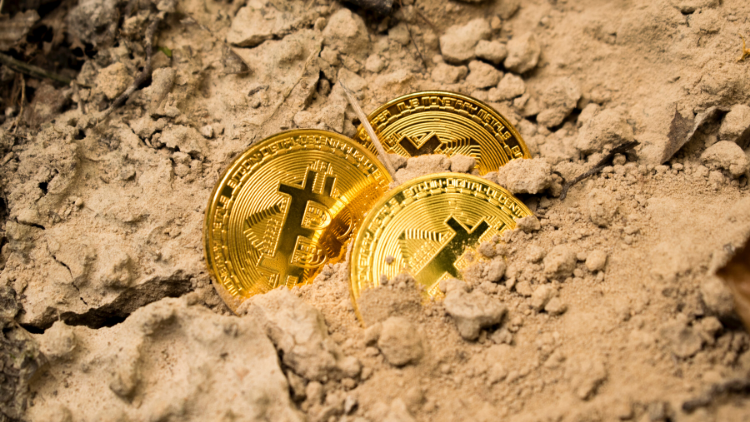

 Blockchain4 years ago
Blockchain4 years ago1.5 Times More Bitcoin is purchased by Grayscale Than Daily Mined Coins
